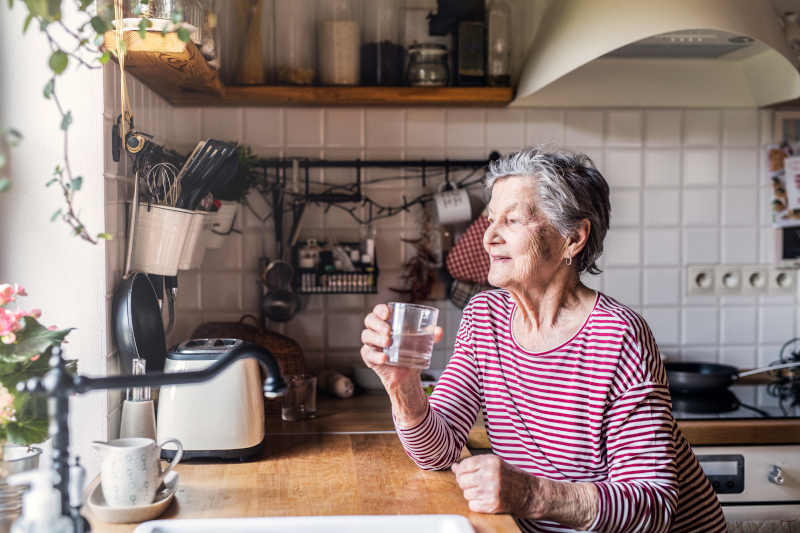Drinking enough water is often a challenge for seniors. The body composition changes as a person ages, so it means that water levels inside your body alter. As a result, it’s effortless to become dehydrated, and when body fluids are low, the sense of thirst isn’t always working as it should.
The Various Causes of Dehydration
Many things can cause the body to become dehydrated. While not getting enough to drink is one of them, something like sweating, urinating frequently, or even an illness can cause things to go downhill quickly.
Even medications can affect the ability of a person to stay hydrated. For example, if a person has dementia or Alzheimer’s, they might not remember the need to drink water, and thus it can cause them significant issues.
Signs of Dehydration
The first and most recognizable sign is feeling thirsty, but remember that seniors often don’t feel this sensation, or perhaps not as strongly. Those who have excessive thirst might already have severe dehydration because they missed the subtle cues from the body. Other signs our home care staff observe are:
- Dry, cotton-like mouth
- Urine that’s strong in odor and dark
- Dizziness – more pronounced upon standing
- Disorientation
- Vomiting
- Diarrhea
- Exhaustion
Preventing Dehydration
The good news is that it’s pretty simple to prevent dehydration. First, the patient must increase the amount of water they intake. Set reminders to take a drink every 45 minutes to an hour is okay. If you don’t like the taste of regular water, add some fresh fruit to give it some pizazz.
You get hydration from some of the foods you eat. The water content is high in peaches, watermelon, tomatoes, and cucumbers, just to name a few veggies and fruits. When the diet is full of plant-based goodness, it helps to increase water intake.
Lastly, choosing soups or broth meals will help with fluid intake. It’s hard to make a small batch of soup, and canned food is full of sodium. It’s best to make freezable batches so you can have leftovers. Some dairy products, such as cottage cheese and yogurt, also have a higher water content, so they can help keep you hydrated.
An in-home caregiver is an excellent resource for aging or health-compromised individuals. We can ensure that our patients get the necessary hydration and all their other medical help. We can also help with meal prep, transportation, and exercise. Contact us at St. Bernadine’s to see how our staff can help you or your loved one with your ongoing care needs.
